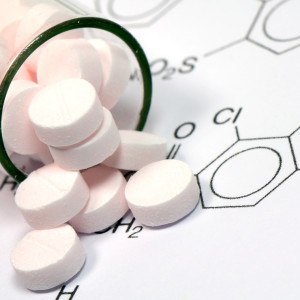As the war on drug pricing continues, a coalition of prominent U.S. senators — including Vermont senator and Democratic presidential candidate Bernie Sanders — are lobbying for Congress and President Obama to take more aggressive steps to tackle the staggering cost of prescription drugs.
Before we all get our pitchforks, let’s first frame the issue. Americans likely spent at least $325 billion on prescription drugs last year. While that is still only approximately 10 percent of total U.S. healthcare expenditures, it is roughly 30 percent more per capita than our Canadian neighbors. No single factor can fully explain these discrepancies. However, the rising use of biologic drugs in the United States (more so than in other parts of the world) and, lack of approved biosimilars (“generic” biologics) are key contributing factors.
According to ExpressScripts, only about 2 percent of the population takes biologic drugs. Yet, the cost of biologic drugs accounts for roughly 40 percent of total prescription drug spending in the United States. The obvious challenge is how to slow this freight train without derailing the incentives to innovate that have nourished the biologics revolution.
Enter biosimilars.
Biosimilars offer a free-market solution to the escalating cost of biologics. Like branded biologics, biosimilars are complex medicines composed of living matter. Like branded biologics, biosimilars undergo clinical trials. Like branded biologics, biosimilars aim to alleviate serious diseases. And, like branded biologics, biosimilars are not new. EU approved its first biosimilar in 2006.
There are now approximately 450 biosimilars approved around the world and an estimated 250 in development (Deloitte). In the European Union, 20 biosimilars are now available to patients. Yet in the United States, we have one. Approved last year. That “one” was approved in EU in 2009. In early February, an FDA advisory panel issued its recommendation to approve Celltrion’s Remsima (a biosimilar of Johnson & Johnson’s Remicade) to treat rheumatoid arthritis and inflammatory bowel conditions.
The positive recommendation by the committee indicates an optimistic future for biosimilars developed to treat autoimmune/inflammatory conditions in the United States.
This latest regulatory advancement further demonstrates that the need for biosimilars is clear. ExpressScripts projects $250 billion in savings from biosimilars of merely the current top 11 biologic drugs that are most likely to lose patent protection over the coming decade. As seen in EU, introduction of biosimilars lowers drug costs and allows more people to benefit from biologic innovation.
The lesson is clear: Biosimilars offer a free-market based solution to the drug pricing kerfuffle. But, biosimilars are an expensive endeavor, requiring relative regulatory, legal and commercial clarity.
Positively, U.S. courts have provided much needed interpretation of parts of U.S. biosimilar regulations. Regulations that, as described by the federal court in Amgen v. Sandoz with a Winston Churchill quote are “a riddle wrapped in a mystery inside an enigma.”
Our hope is that as planned and promised, 2016 will indeed finally be the seminal year for biosimilars in the United States. We are ready, eager and able to bring innovative market-based solutions to the problem of high drug costs.

